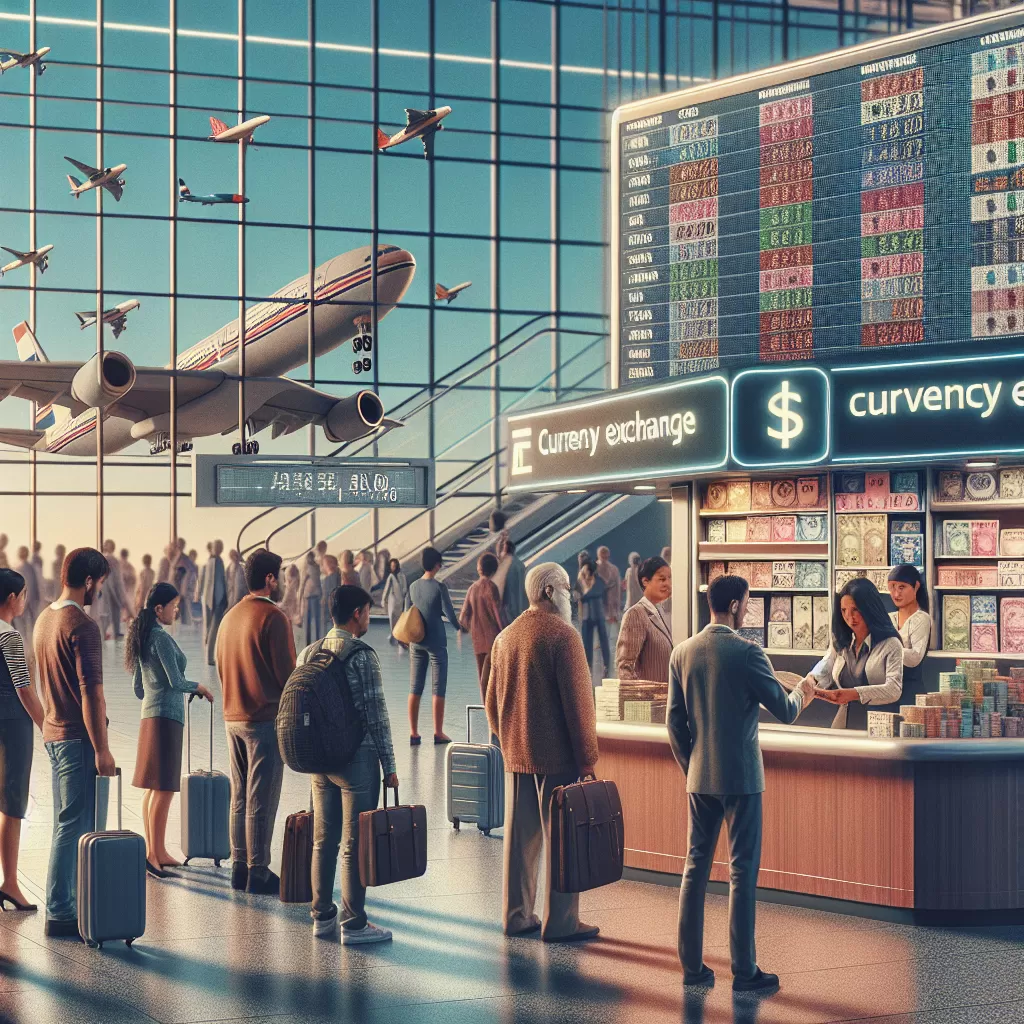Where Can Exchange Foreign Currency
Follow Currency Mart April 10, 2024
Where to purchase Foreign Currencies?

Introduction
Foreign currency exchange is a necessity for international transactions, travel, or simply for holding a diverse assemblage of funds. The options for exchanging foreign currency are virtually limitless but knowing where to get the best rates and services can save an individual or a business time and money. This article will guide you to the key places where you can exchange foreign currency, exploring the pros and cons of each.Banks and Credit Unions
One of the most common locations for foreign currency exchange are traditional banks and credit unions. These institutions offer a wide range of currencies for exchange, usually at competitive rates. Additionally, customers can benefit from the convenience of being able to perform these exchanges at their local branch or online. The downside to banks and credit unions is that they often charge service fees that can make smaller exchanges not monetarily practical. Also, these institutions might not have less common currencies readily available.Foreign Exchange Bureaus
Foreign exchange bureaus or currency exchange shops are dedicated establishments for currency conversion. These are often located in high-traffic areas such as city centres, airports or in tourist hotspots. Their services are generally fast and efficient, with a wide variety of currencies readily available. The drawback here is that these services often come with higher exchange rates and fees, due to their convenience and high operating costs.Online Currency Exchange Platforms
The advent of internet technology has made it possible for users to exchange foreign money from the comfort of their home. Platforms like OFX, TransferWise, and XE have risen to prominence, offering competitive rates, fast transactions, and lower fees. While the rates and speed are competitive online, there may be security concerns with using these platforms. Additionally, getting physical cash from these exchanges may be limited or require additional fees.Peer-to-Peer Exchanges
The peer-to-peer economy has also impacted foreign currency exchange. Platforms like LocalBitcoins allow users to exchange foreign currency with people in their local proximity, typically for cryptocurrency like Bitcoin. These platforms circumvent traditional banking systems, potentially offering more favorable exchange rates. The downside is that these exchanges carry a level of risk due to their less-regulated nature, both in terms of security and in the stability of the rates.Post Offices
This might be a surprising inclusion, but in several countries, national post offices offer currency exchange services. They often offer competitive rates and, depending on the country, can have a fair reach across the territory. The downside is similar to that of banks, though. Post offices may not carry more obscure currencies, and there may be limitations on the amount you can exchange.Using Prepaid Travel Cards
Prepaid travel cards are a great option for travelers. These cards allow you to load money and convert it into a foreign currency at a predetermined rate. They are safer and more convenient than carrying cash and provide protections against fluctuations in the foreign currency market. The downside here is that these cards often come with their own fees, and may not be accepted in every location.Conclusion
Choosing where to exchange foreign currency is a decision that should be based on an individual's unique needs and circumstances. Each option has its own advantage and disadvantage - and what works best for one person might not be the best fit for another. Whether convenience, rate, or the availability of certain currencies is your primary concern, there is a solution out there for everyone. As the Guardian of foreign exchange, I'm here to help guide you through this complex realm.
Where to purchase Foreign Currencies?